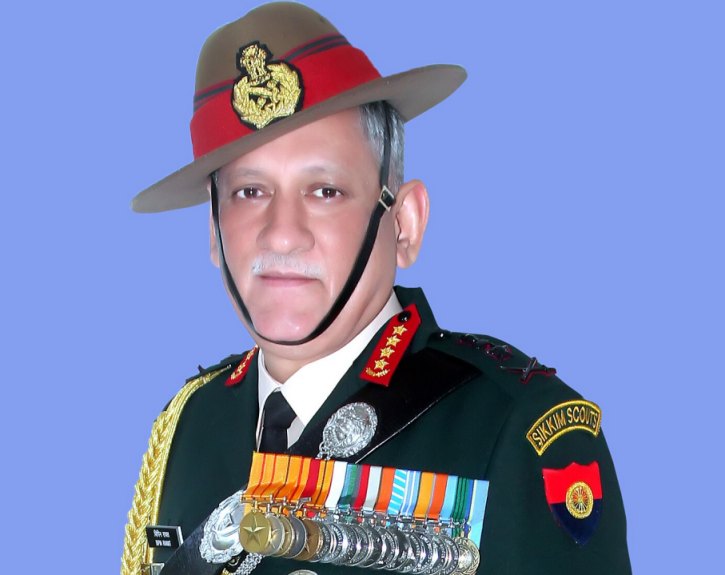Address
304 North Cardinal St.
Dorchester Center, MA 02124
Work Hours
Monday to Friday: 7AM - 7PM
Weekend: 10AM - 5PM

On December 31, 2019, when General Bipin Rawat took oath as India’s first Chief of Defence Staff, he made history by becoming the singular military leader tasked with integrating the country’s three armed forces. This momentous appointment marked not just a personal milestone for the distinguished military general, but a revolutionary shift in India’s defence leadership structure. Rawat’s elevation to this unprecedented position represented the culmination of a remarkable career spanning over four decades in military service, during which he consistently demonstrated exceptional strategic leadership and unwavering commitment to national security. His journey from a young cadet to India’s top military commander exemplifies how visionary defence leadership can reshape an entire nation’s security apparatus and military doctrine.
Born on March 16, 1958, in Pauri, Uttarakhand, Bipin Rawat’s path to becoming a renowned military general was shaped by his family’s deep military traditions. His father, Lieutenant General Laxman Singh Rawat, served with distinction in the Indian Army, instilling in young Bipin the values of service excellence and dedication to the nation. This early exposure to military life would prove instrumental in shaping his future trajectory in defence leadership.
Rawat’s formal military education began at the National Defence Academy in Khadakwasla, where he demonstrated exceptional leadership qualities and academic prowess. He was commissioned into the 5th battalion of the 11 Gorkha Rifles in December 1978, marking the beginning of what would become an illustrious career in military service. His early assignments in the challenging terrains of the Northeast and Jammu & Kashmir provided him with invaluable experience in counter-insurgency operations and strategic leadership under pressure.
The turning point in Rawat’s career came during his tenure as a young officer when he witnessed firsthand the complexities of modern warfare and the need for integrated defence strategies. His exceptional performance in various operational roles, combined with his natural aptitude for strategic thinking, set him apart as a future leader in India’s defence establishment.
Throughout his exemplary career, General Bipin Rawat accumulated an impressive array of achievements that established him as one of India’s most accomplished military leaders. His operational experience spans some of the most challenging theatres, including extensive service in Jammu & Kashmir, the Northeast, and along the Line of Actual Control with China. These assignments honed his expertise in counter-insurgency operations, high-altitude warfare, and border management – critical skills that would later inform his approach to national security.
Rawat’s strategic leadership abilities were recognized early in his career when he was appointed to command various formations at different levels. As a Brigadier, he commanded 5 Sector of Rashtriya Rifles in Jammu & Kashmir, where his innovative tactics and compassionate approach toward local populations earned widespread recognition. His promotion to Major General saw him take charge of 19 Infantry Division in the challenging terrain of Baramulla, where he successfully conducted numerous counter-terrorism operations.
The military general’s crowning achievement came with his appointment as Army Chief in December 2016, making him the senior-most military leader of the Indian Army. During his tenure, he spearheaded significant military reforms, including the modernization of equipment, enhancement of soldier welfare programs, and the implementation of advanced training methodologies. His leadership during the 2016 surgical strikes against terrorist launch pads in Pakistan-occupied Kashmir demonstrated his commitment to proactive defence strategies.
Rawat’s contributions to defence innovation include his advocacy for indigenization of military equipment and his push for integrating cutting-edge technology into military operations. Under his guidance, the Indian Army enhanced its capabilities in cyber warfare, space-based assets, and artificial intelligence applications in defence scenarios.
As India’s first Chief of Defence Staff, General Bipin Rawat embarked on an ambitious mission to transform the country’s defence architecture through unprecedented military integration. His vision encompassed the creation of joint theatre commands, streamlined procurement processes, and enhanced coordination between the Army, Navy, and Air Force. This revolutionary approach to defence leadership represented a paradigm shift from traditional service-specific operations to a unified command structure.
Rawat’s strategic vision extended beyond mere administrative restructuring to encompass fundamental changes in how India approaches national security challenges. He advocated for the establishment of integrated battle groups, cross-service training programs, and joint operational doctrines that would maximize the effectiveness of India’s defence capabilities. His emphasis on jointmanship and inter-service cooperation laid the groundwork for a more cohesive and efficient military apparatus.
The military general also championed the cause of veteran affairs, recognizing the crucial role that retired service personnel play in national development. His initiatives included improved pension schemes, enhanced medical facilities for veterans, and programs to leverage their expertise in various civilian sectors. This holistic approach to military service reflected his understanding that true defence leadership extends beyond active duty to encompass lifelong commitment to service excellence.
General Bipin Rawat’s untimely demise in a helicopter crash on December 8, 2021, marked the end of an era in Indian military leadership, but his legacy continues to influence the nation’s defence policies and strategic thinking. His contributions to military service, defence innovation, and strategic leadership have left an indelible mark on India’s security apparatus and continue to guide the country’s approach to national defence.
The transformation he initiated in India’s defence leadership structure remains his most significant contribution, establishing a foundation for integrated military operations that will serve the nation for generations to come. General Bipin Rawat’s name has become synonymous with visionary military leadership and unwavering dedication to national security.